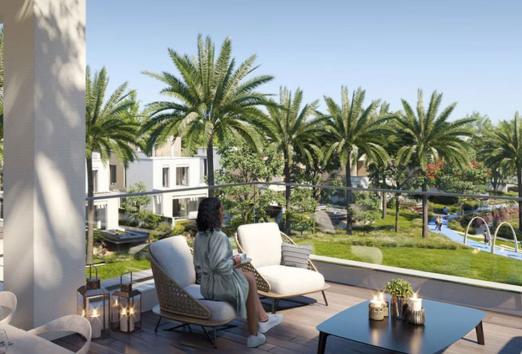By Sakani
Everything you need to know about buying and selling properties in Dubai

Dubai has firmly established itself as one of the world’s most dynamic real estate markets, offering lucrative opportunities for investors, end-users, and homeowners alike. Whether you're looking to buy your first home, invest in short-term rentals, or sell a property for profit, understanding the process is key to making smart decisions in the emirate.
Buying property in Dubai
1. Freehold vs. leasehold areas
Freehold: Allows foreign nationals full ownership of the property and the land it stands on. Popular freehold zones include Dubai Marina, Downtown Dubai, Palm Jumeirah, and Jumeirah Village Circle.
Leasehold: Grants rights to use the property for a set number of years (typically 10 to 99), but ownership remains with the freeholder.
2. Types of properties
Dubai offers a variety of options:
Apartments (studios to penthouses)
Townhouses and villas
Hotel apartments
Off-plan properties (from developers before completion)
Commercial spaces (offices, retail units, warehouses)
3. Costs to consider
Downpayment: Minimum 20% for expats, 15% for UAE nationals (first property).
Dubai Land Department (DLD) fee: 4% of the property value.
Agent commission: Usually 2%.
Mortgage registration fee: 0.25% of the loan amount (if applicable).
Valuation, trustee, and admin fees: Vary depending on the property.
4. The buying process
Find a property via portals like Sakani, or through a trusted agent.
Sign a Memorandum of Understanding (MOU) and pay a 10% deposit.
Secure financing if applicable.
Get NOC from the developer (for secondary sales).
Transfer ownership at a DLD-approved trustee office.
5. Can foreigners buy property?
Yes, foreign nationals can buy in designated freehold areas. They can also apply for long-term residency through property investment if they meet the threshold.
Selling property in Dubai
1. Get a property valuation
) or consult an RERA-certified agent to price realistically.
2. Prepare legal documents
Title deed
Passport copy
Oqood (for off-plan)
Power of attorney (if acting on behalf of the owner)
3. Sign an agency agreement
Sellers must issue a Form A (signed agreement with an agent), as per RERA requirements.
4. Marketing your property
Use high-quality photos, videos, or 3D tours.
Consider boosting your listing on platforms like Sakani to get better visibility.
Highlight features like location, payment plans, and potential ROI.
5. Closing the deal
Negotiate and accept an offer.
Sign the MOU, collect the 10% deposit.
Apply for NOC from the developer.
Transfer ownership at a trustee office.
Key tips for buyers and sellers
Work only with RERA-certified brokers.
Use property platforms with verified listings to avoid time-wasters.
Understand market trends—whether it's a buyer's or seller's market can influence pricing and urgency.
Off-plan vs. ready properties: Off-plan often comes with attractive payment plans but carries more risk.
Golden Visa eligibility: If you’re buying a property worth AED 2M+ (with or without a mortgage), you may be eligible for a 10-year residency.
Final thoughts
Dubai’s property market offers exciting opportunities, but navigating it requires the right knowledge and support. Whether you're buying, selling, or investing, understanding the steps involved—and the costs that come with them—can help you make smarter decisions.
At Sakani, we’re building tools that simplify this journey: from and to smart and handpicked property collections. Ready to explore? Start or get a quick valuation today.